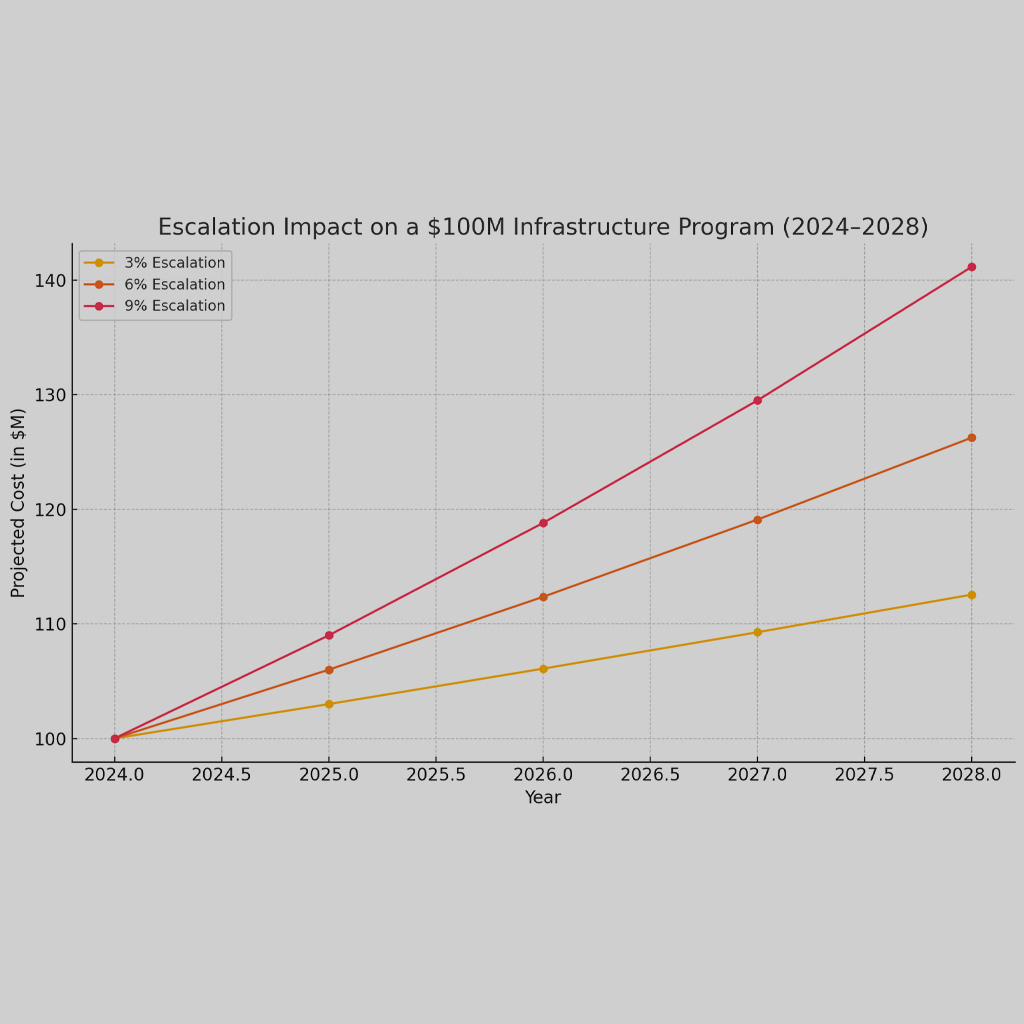“Lost time is never found again.” -Benjamin Franklin
Over the past six years, our firm has successfully managed the completion of over 40 capital improvement projects across Central Texas. Through these experiences, we have gained invaluable insights into what it takes to deliver a successful CIP program. Without a doubt, these are the five biggest lessons we’ve learned for ensuring timely, cost-effective, and impactful outcomes for our constituents.
Sense of Urgency:
Time equals money, reputation, and trust. The longer projects take to complete, the higher the cost and the higher the likelihood of mistakes, policy changes that negatively impact designs, loss of constituent goodwill, and loss of utilization. This not only results in the loss of constituent tax dollars through increased carrying costs on the bonds and budget but also leads to a compounded loss of economic development. We have been involved in nearly 150 capital projects in the last five years, and in zero instances have delays led to a positive outcome.
Clear Vision with Defined Goals:
A clear vision with defined goals that are simple and understood from the top to the bottom is crucial. “We will complete all projects in the bond portfolio in five years” is a great example of something tangible and definable that offers no ambiguity. Statements like “We will be the best organization in the state at Capital Improvement projects,” “We will serve our constituents every day,” and “Success will be the only option” are all noble but without measurements, they remain more aspirational than directional.
Continued Emphasis and Enforcement from the Top:
Governments are created by the voters but led by the elected officials and their executives who create and enforce policies and initiatives. As you go down the staffing levels, employee behavior is most impacted by what leadership emphasizes and bases employee performance assessments on. Many employees are self-directed, but that direction is based on the guidance of their superiors, what factors are being evaluated for their next promotion, the standards they are held to, and the performance of their peers. When leadership within government agencies continually emphasizes the importance of the successful execution of a CIP program in words and deeds, rewarding and penalizing individuals for fulfilling this intent, you have success.
Laser Focus on Budgets, Schedules, and Contract Compliance:
This is hard and virtually impossible without the first three elements mentioned, but it is the key tactical work needed to actualize strategic objectives. This takes discipline, persistence, consistency, and yes, additional work, enforcement, and paperwork, especially in the beginning. Systems, processes, and automation are out there to make this easier than ever before, but it still requires work and is a relatively new approach in much of the construction industry. Key to this is enforcement; local governments must institute and enforce controls. Contracts and policies are of no value if there are no repercussions for failure to follow or perform, nor do they make sense if officials are hesitant to enforce. This process takes diligence, but taxpayers deserve to have their money spent wisely. The same rules that apply to constituents for failing to abide by a contract should apply to those vendors they are paying to improve their community.
Complete Communication, Accountability, and Transparency:
The average voter in Texas spends more than $800 a year on CIP programs. Bond programs are increasing rapidly throughout the state to try and keep up with the exponential economic and population growth experienced statewide. Traffic is increasing, causing more time on the road and less time with our families. Infrastructure is becoming outdated while projects are becoming much more expensive. Voters want to know what their local government is doing to address these issues; they deserve to know, they have the right to know, and with today’s technology, they should know. More than ever before, local leaders have the ability to include citizens in the entire process from initial planning and development down to the daily activity and budget impact of every project in the community. Through the internet and smartphone, constituents should be able to see how effectively their tax dollars are being spent and have a voice in the expenditure of their money. Inversely, this is a great platform for government leaders to increase trust. Trust in local leadership, according to many polls, is at an all-time low. By successfully implementing the first four points, government leaders can easily communicate with those they serve that projects are moving on time and on budget and their money is being well spent. When we have seen clients do this effectively, the results are amazing.
The key is that this process can’t be a New Year’s resolution quickly abandoned after an election cycle or another high-profile “fire drill.” It must be considered an independent priority with continued focus from beginning to end.
We’d like to say from our experience that eventually things get easier, but they don’t. Accomplishing great things is hard, and that is how it works. Ultimately, good habits will develop, accepted standards will be institutionalized, high expectations will develop both internally and externally to the point where an organization is highly recognized, and that recognition becomes a point of pride and self-identity. But that takes time and tremendous effort—effort that is worth it, effort that is expected by voters, effort that is necessary if Texas is to remain one of the greatest states in the country… Some may say the greatest country in the United States.
At Front Line Advisory Group, we manage Capital Improvement programs to ensure they are completed on time and within budget. We make sure every dollar is used wisely to improve our community. For more information or to start your project, contact us at info@frontlineadvisorygroup.com.













